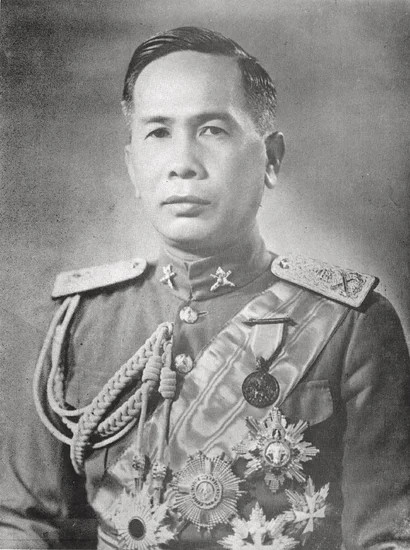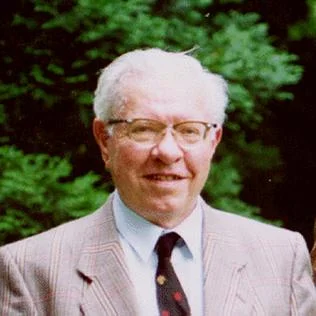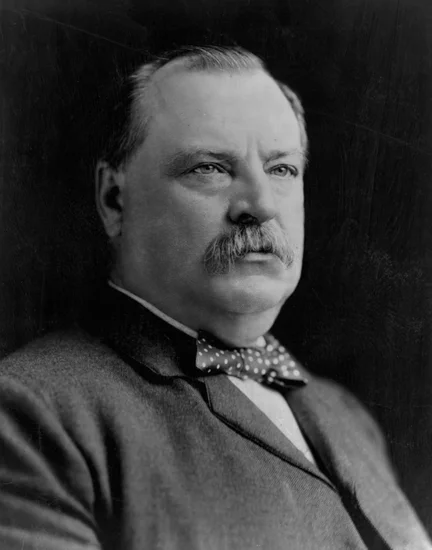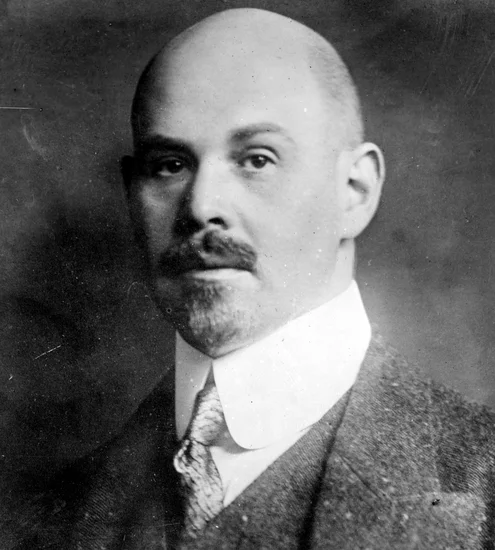June 24 stands as one of history’s most eventful days, witnessing the rise and fall of empires, groundbreaking discoveries, and moments that shaped our modern world across centuries of human achievement.

Politics and Government Events on June 24
1932 – Siamese Revolution Ends Absolute Monarchy
The People’s Party executed a bloodless revolution that terminated King Prajadhipok’s absolute power in Siam. This pivotal moment transformed the ancient kingdom into a constitutional monarchy.
The revolution marked Thailand’s transition toward modern democratic governance. Political reformers successfully challenged centuries of absolute royal authority without violent conflict.
1948 – Berlin Blockade Begins
The Soviet Union initiated the Berlin Blockade, cutting off all overland access between West Germany and West Berlin. This aggressive move escalated Cold War tensions to unprecedented levels.
The blockade forced Western allies to organize the historic Berlin Airlift. Stalin’s strategic gambit ultimately strengthened Western resolve and NATO unity.
1963 – Zanzibar Gains Self-Government
The United Kingdom granted internal self-government to Zanzibar, marking a crucial step toward East African independence. Colonial administrators transferred significant political authority to local leaders.
This decision reflected Britain’s evolving decolonization strategy across Africa. Zanzibar’s newfound autonomy would soon lead to complete independence and eventual union with Tanganyika.
1989 – Jiang Zemin Rises to Power

Jiang Zemin succeeded Zhao Ziyang as General Secretary of the Chinese Communist Party following the Tiananmen Square protests. His appointment signaled Beijing’s hardline response to democratic demonstrations.
The leadership transition consolidated conservative control over China’s political direction. Jiang’s rise would define Chinese politics for the next decade.
2010 – Australia’s First Female Prime Minister

Julia Gillard assumed office as Australia’s first female Prime Minister after challenging Kevin Rudd’s leadership. Her historic appointment shattered the nation’s highest political glass ceiling.
Gillard’s ascension represented a watershed moment for women in Australian politics. The Labor Party’s leadership change demonstrated internal party democracy in action.
2022 – Roe v. Wade Overturned
The U.S. Supreme Court ruled in Dobbs v. Jackson Women’s Health Organization that abortion regulation authority belonged to individual states. This landmark decision overturned nearly fifty years of federal abortion rights precedent.
The ruling immediately triggered legal battles across multiple states. American reproductive rights policy underwent its most dramatic transformation since the 1970s.
Military and Naval History on June 24
1940 – First British Commando Raid
Operation Collar launched the first British Commando raid on Nazi-occupied France, executed by No 11 Independent Company. This daring mission pioneered special forces operations against German positions.
The raid demonstrated British determination to strike back despite military setbacks. Commando operations would become integral to Allied strategy throughout World War II.
1943 – Battle of Bamber Bridge
US military police attempted to arrest a Black soldier in Bamber Bridge, England, sparking a violent confrontation. The resulting mutiny left one dead and seven wounded, exposing racial tensions within American forces.
This incident highlighted systemic racism plaguing the US military during wartime. The Battle of Bamber Bridge became a significant moment in military civil rights history.
1945 – Victory Day Parade in Moscow

The first Victory Day Parade took place on Red Square in Moscow, celebrating the Soviet Union’s triumph over Nazi Germany. Thousands of troops marched before Stalin and Allied representatives.
The spectacular parade showcased Soviet military might to the world. This ceremonial display established a tradition that continues in modern Russia.
1954 – Battle of Mang Yang Pass
Viet Minh troops from the 803rd Regiment ambushed French forces at Mang Yang Pass in An Khê. This engagement exemplified guerrilla warfare tactics that would define the First Indochina War.
The successful ambush demonstrated Vietnamese military adaptability and strategic thinking. French colonial forces struggled against unconventional warfare throughout the conflict.
Science and Discovery Milestones on June 24
1938 – Chicora Meteorite Impact
A massive meteorite estimated at 450 metric tons exploded in Earth’s atmosphere near Chicora, Pennsylvania. Fragments scattered across the countryside, providing valuable scientific specimens for researchers.
This celestial event offered astronomers crucial data about extraterrestrial materials. The meteorite’s composition revealed insights into solar system formation and cosmic processes.
1947 – First Widely Reported UFO Sighting
Kenneth Arnold reported seeing unidentified flying objects near Mount Rainier, Washington, launching the modern UFO phenomenon. His detailed account captured public imagination and media attention worldwide.
Arnold’s sighting coined the term “flying saucers” and sparked decades of speculation. The incident fundamentally changed how Americans viewed unexplained aerial phenomena.
1975 – Eastern Air Lines Flight 66 Crash

Eastern Air Lines Flight 66 encountered severe wind shear during its final approach to JFK Airport, killing 113 passengers. This tragic accident catalyzed extensive research into downburst and microburst phenomena.
The disaster led to revolutionary advances in aviation safety technology. Meteorological research dramatically improved aircraft landing procedures and weather detection systems.
1982 – Jakarta Incident

British Airways Flight 009 flew into volcanic ash from Mount Galunggung, causing all four engines to fail simultaneously. The crew’s skillful emergency response saved all passengers aboard.
This incident revolutionized aviation safety protocols regarding volcanic ash hazards. Airlines developed comprehensive procedures for detecting and avoiding volcanic ash clouds.
Cultural and Arts Events on June 24
1916 – Mary Pickford’s Million-Dollar Contract

Mary Pickford became the first female film star to sign a million-dollar contract, revolutionizing Hollywood’s compensation structure. Her unprecedented deal established actresses as major box office draws.
Pickford’s contract shattered gender barriers in the entertainment industry. This landmark agreement paved the way for female performers to demand equal compensation.
1949 – First Television Western
“Hopalong Cassidy” premiered on NBC, starring William Boyd as the first television western hero. The show established a genre that would dominate American television for decades.
This groundbreaking series demonstrated television’s potential for serialized storytelling. Western programming became a cornerstone of American popular culture.
1957 – Obscenity Ruling
The U.S. Supreme Court ruled in Roth v. United States that obscenity lacked First Amendment protection. This decision established legal precedent for censorship and artistic expression battles.
The ruling sparked ongoing debates about free speech and artistic freedom. Cultural creators faced new legal challenges regarding controversial content.
Religious and Social Events on June 24
1950 – South African Group Areas Act
South Africa’s apartheid government passed the Group Areas Act, formally segregating races through residential zoning. This legislation institutionalized racial separation across the nation.
The act displaced millions of non-white South Africans from their homes. This oppressive law became a cornerstone of apartheid’s systematic discrimination.
1973 – UpStairs Lounge Tragedy

An arson attack at the UpStairs Lounge gay bar in New Orleans killed thirty-two people through fire and smoke inhalation. This hate crime targeted the LGBTQ+ community during a time of widespread discrimination.
The tragedy highlighted violent persecution faced by gay Americans. The incident became a rallying point for LGBTQ+ rights activism.
2013 – Silvio Berlusconi Conviction
Former Italian Prime Minister Silvio Berlusconi was convicted of abuse of power and engaging in sex with an underage prostitute. The court sentenced him to seven years in prison.
This conviction marked a significant moment in Italian politics and justice. Berlusconi’s legal troubles reflected broader concerns about political corruption.
Business and Economic Events on June 24
1939 – Siam Renamed Thailand

Prime Minister Plaek Phibunsongkhram officially renamed Siam to Thailand, modernizing the nation’s international identity. This change reflected growing nationalism and cultural pride.
The renaming symbolized Thailand’s emergence as a modern Southeast Asian power. The new name emphasized the country’s independence from colonial influence.
1981 – Humber Bridge Opens

The Humber Bridge opened to traffic, connecting Yorkshire and Lincolnshire as the world’s longest bridge span. This engineering marvel remained record-holding for seventeen years.
The bridge transformed regional transportation and economic development. Its construction demonstrated British engineering expertise on a global scale.
2004 – Capital Punishment Banned in New York
New York state declared capital punishment unconstitutional, joining a growing movement against the death penalty. This decision reflected evolving attitudes toward criminal justice.
The ruling influenced national debates about capital punishment effectiveness. New York’s stance contributed to America’s declining use of execution.
Transportation and Infrastructure on June 24
1918 – Canada’s First Airmail Service
Canada inaugurated its first airmail service between Montreal and Toronto, revolutionizing postal communications. This pioneering flight connected major Canadian cities through aviation.
The service demonstrated aircraft’s commercial potential beyond military applications. Canadian postal efficiency improved dramatically through aerial delivery.
2002 – Igandu Train Disaster
The Igandu train disaster in Tanzania killed 281 people, becoming Africa’s worst train accident in history. This tragedy highlighted infrastructure safety challenges across the continent.
The disaster prompted international discussions about railway safety standards. African transportation infrastructure required significant investment and modernization.
2021 – Champlain Towers Collapse
The Champlain Towers South condominium in Surfside, Florida, suffered sudden partial collapse, killing 98 residents. This structural failure shocked the construction industry.
The collapse triggered nationwide building safety inspections and regulatory reforms. Engineering professionals reassessed high-rise maintenance and monitoring protocols.
Sports and Recreation on June 24
1922 – NFL Formation
The American Professional Football Association was renamed the National Football League, establishing America’s premier football organization. This rebranding marked professional football’s institutional maturation.
The NFL’s formation standardized rules and organized competition structure. American football evolved from amateur sport to major entertainment industry.
1995 – Rugby World Cup Victory
South Africa defeated New Zealand in the Rugby World Cup final, with Nelson Mandela presenting the trophy to captain Francois Pienaar. This moment symbolized post-apartheid reconciliation.
The victory united South Africans across racial divides through sport. Mandela’s participation demonstrated sport’s power to heal national wounds.
2010 – Historic Wimbledon Match
John Isner defeated Nicolas Mahut in the longest professional tennis match in history at Wimbledon. Their epic encounter lasted eleven hours and five minutes across three days.
The match redefined tennis endurance and mental toughness standards. Wimbledon officials subsequently modified rules to prevent such marathon encounters.
Notable Births on June 24
1911 – Juan Manuel Fangio

Juan Manuel Fangio was born in Argentina, destined to become Formula One’s greatest early champion. His childhood in rural Argentina shaped his mechanical intuition and competitive spirit.
Fangio would win five Formula One World Championships during the 1950s. His racing prowess established Argentina as a major force in international motorsport.
1915 – Fred Hoyle

Fred Hoyle entered the world in England, future astronomer and cosmologist who would challenge conventional scientific thinking. His early fascination with mathematics and physics guided his academic pursuits.
Hoyle coined the term “Big Bang” while ironically advocating for steady-state cosmology. His controversial theories sparked decades of productive scientific debate.
1944 – Jeff Beck

Jeff Beck was born in England, destined to become one of rock’s most innovative guitarists. His early musical experiments with electronic effects revolutionized rock guitar sound.
Beck’s technical virtuosity influenced countless musicians across multiple genres. His career spanned five decades of continuous musical evolution and innovation.
1947 – Mick Fleetwood

Mick Fleetwood was born in England, future drummer and founding member of Fleetwood Mac. His rhythmic foundation anchored one of rock’s most successful bands.
Fleetwood’s steady percussion supported the band through numerous lineup changes. His business acumen helped navigate the music industry’s complex challenges.
1987 – Lionel Messi

Lionel Messi was born in Argentina, destined to become football’s greatest player. His childhood growth hormone deficiency nearly ended his career before it began.
Messi’s incredible skill and vision redefined modern football excellence. His rivalry with Cristiano Ronaldo elevated the sport to unprecedented global heights.
Notable Deaths on June 24
1908 – Grover Cleveland

Grover Cleveland, America’s 22nd and 24th President, died at age 71. His unique distinction of serving non-consecutive terms remains unmatched in presidential history.
Cleveland’s commitment to fiscal responsibility and government reform shaped late 19th-century American politics. His principled stance often conflicted with party politics.
1922 – Walther Rathenau

Walther Rathenau, German Foreign Minister, was assassinated by right-wing extremists in Berlin. His death shocked the international community and destabilized Weimar Germany.
Rathenau’s efforts to rebuild Germany’s international relationships ended tragically. His assassination demonstrated the violent political tensions plaguing post-war Europe.
1987 – Jackie Gleason

Jackie Gleason, beloved American comedian and actor, died at age 71. His portrayal of Ralph Kramden in “The Honeymooners” defined American television comedy.
Gleason’s larger-than-life personality and comedic timing influenced generations of performers. His catchphrases and characters became embedded in American popular culture.
2012 – Lonesome George

Lonesome George, the last known Pinta Island tortoise, died at approximately 102 years old. His death marked the extinction of his subspecies and symbolized conservation challenges.
George’s lonely existence highlighted humanity’s impact on biodiversity. His death galvanized international conservation efforts across the Galápagos Islands.
Holidays and Observances on June 24
Saint John the Baptist Day

Christians worldwide celebrate the Nativity of Saint John the Baptist, commemorating the birth of Jesus Christ’s forerunner. This ancient feast day holds special significance in Christian liturgical calendars.
The celebration predates many Christian holidays and incorporates various cultural traditions. European communities particularly embrace this summer solstice celebration.
Midsummer Celebrations

Midsummer Day in England marks the peak of summer celebration, though not astronomically accurate. Communities gather for traditional festivities including bonfires, dancing, and feasting.
These ancient celebrations connect modern communities with pre-Christian traditions. Midsummer observances vary significantly across different European cultures.
Saint-Jean-Baptiste Day

Quebec celebrates Saint-Jean-Baptiste Day as its national holiday, honoring French-Canadian heritage and culture. The province embraces this day with parades, concerts, and cultural events.
This celebration reinforces Quebec’s distinct identity within Canada. French-Canadian traditions and language receive special recognition during festivities.
Army Day in Venezuela
Venezuela commemorates Army Day and the Battle of Carabobo, celebrating national independence and military heritage. This patriotic observance honors the nation’s liberation struggle.
The battle’s victory secured Venezuelan independence from Spanish colonial rule. Military parades and ceremonies demonstrate national pride and historical memory.
